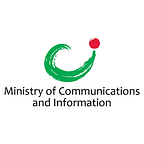Nurture the next generation of translation talents in Singapore
Grooming Singaporeans who have a strong interest in translation and interpretation, and a deep familiarity with the Singapore context
To encourage deepening of skills and lifelong learning, the Translation Talent Development Scheme (TTDS) was launched to provide opportunities and support for local translation and interpreters.
We speak to three translation talents — Mr Clement Huang (CH) and Mr Karunanithi s/o Jeevanantham (KJ), as well as Mr Bashir Basalamah (BB), a member of the Malay Resource Panel of the National Translation Committee to find out what spurred them to embark on their unique journeys in translation.
How did you get started with translation?
CH: My parents were both Chinese-educated, and I grew up in a Chinese-speaking environment. I did my degree in Chemical Engineering in the United States, where my final year professor emphasised the importance of being able to write very well in English. I learned to appreciate languages and gravitate towards translation. My first professional encounter was with Madam Goh Beng Choo, a multitalented literary translator, who I met at Grassroots Book Room. She started me off on a wide range of freelance translation projects.
KJ: From young, we are exposed to two languages-be it in school, academically, or at home when we use Mother Tongue to communicate with our family and seniors. Hence, being bilingual has become a necessity and important in our daily communications. It also opens doors to exciting careers in any part of the world. Singapore as a multi-cultural and multi-language country provides a unique platform for those interested in the media industry.
BB: Actually, it wasn’t inspiration or motivation. I was looking for a job, I applied for the Court Interpreters and I got it. Gradually, however, I found the job exciting, enjoyable and enriching. It was not just about language but the law and judicial procedures as well as the variety of cases you encounter in court. People tend to see interpreting and translating as natural extensions of each other. Where interpretation is mental multitasking and quick thinking, translation is a lot more thoughtful and reflective. Both presume deep knowledge of the language as well as understanding of different tribes, cultures, and how we perceive the world.
Why do you think translation is important?
CH: It is important because not everyone speaks English, even though it is a commonly used working language. Hence to achieve effective communication, our role, as a translator, comes into the picture. Translation is multidisciplinary, it has to be functional at a language and cultural level. We need to ensure that the intended message is interpreted accurately while considering the recipient’s cultural background.
KJ: Translation is important to those who can only communicate in their own Mother Tongues. We need to be able to relay key messages in a simple and clear manner to these people who need translation most.
What do you hope to achieve after the award?
CH: In the big picture perspective, translators and interpreters remain vital in connecting the global economy. For example, in the oil, gas and chemicals industry, it can help to drive more exchanges between China and Singapore, which would be beneficial to Singapore’s economy. Besides that, I would definitely like to enhance my translation skills and do more work in the oil, gas and chemicals industry. I would also love to contribute more to the music and culture sector which I have a great interest in.
KJ: I hope to contribute more to my community, especially in my works for religious translation.
Separately for Mr Bashir, you are currently teaching interpretation at SUSS.
What do you find fulfilling in this role?
BB: I see teaching as a way to contribute to the profession. The majority of my students are unfamiliar with the field, and even with experienced linguists among them, I enjoy sharing my knowledge and experience and showing my enthusiasm. Even if none of them eventually become interpreters or translators, I hope they gain a positive perception of the discipline. And I am sure the competencies introduced will serve them well in their own respective pursuits.
Mr Bashir, what are the challenges facing young translators/interpreters today? How do you think TTDS can help them?
BB: The biggest challenge today I’d say is the lack of training opportunities within Singapore — particularly in language pairs other than English-Chinese — and the cost of training overseas. Clearly, that’s where TTDS helps, because it gives our budding professionals access to training and networking both here and overseas. The very existence of TTDS is a public statement of the importance of training, and a call to the translation community to embrace it.
Any key takeaways for those who are interested in translation?
CH: Translation is a multidisciplinary field, and so if you have another passion besides languages and translation, don’t feel limited pursuing studies in translation only. In fact, it is extremely beneficial to have specific domain knowledge in another field other than translation, so you can be an expert translator in that field. Also, as translators, besides functioning at a language level, it is even more important to function at a “cultural” level as well. For me, in my context of translating meetings, besides understanding the language, it is also crucial to understand the cultural background of the languages that you are translating in so I can be tactful in my translation. An accurate translation may not be an appropriate translation.
KJ: Appreciate the multi-cultures and racial integration in Singapore and always keep a look out for opportunities to share them with fellow Singaporeans.
Learn more about the Translation Talent Development Scheme
The Translation Talent Development Scheme (TTDS) is a co-sponsorship grant that supports Singaporean translation and interpretation practitioners from the private sector to further develop their capabilities and attain mastery of their skills. Application for this year’s TTDS is closing on 31 May. For more information, visit www.mci.gov.sg/ttds.
